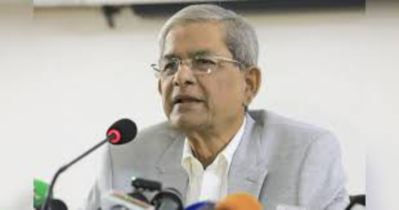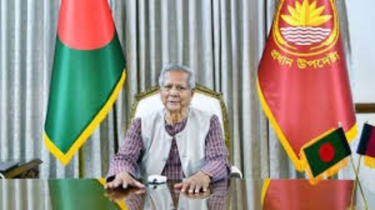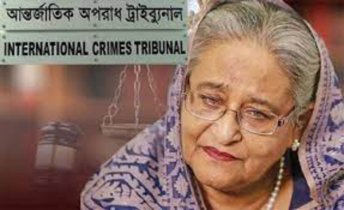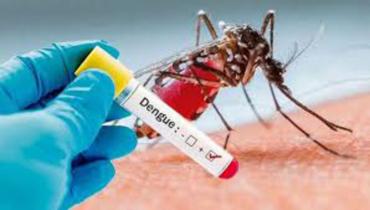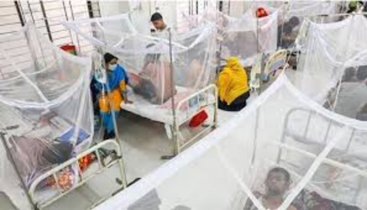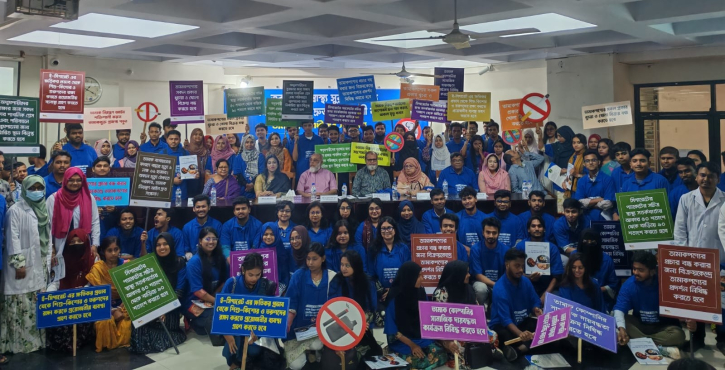
A youth conference titled “Strengthening Tobacco Control Law is Urgently Needed to Protect Youth Health” was held on Thursday, 10 July 2025, at the Muzaffar Ahmed Chowdhury Auditorium of the University of Dhaka.
The event was organized by the Development Organization of the Rural Poor-DORP in collaboration with Dhaka Ahsania Mission, Nari Maitree, and the National Heart Foundation.
Over 200 students from various educational institutions—including the University of Dhaka, Jahangirnagar University, Jagannath University, BUP, Dhaka College, Government Bangla College, Khilgaon Model College, and members of the Dhaka University Journalists' Association—participated in the event.
Chief Guest Dr. Abu Mohammad Zakir Hossain, Chairman of the Community Clinic Health Assistance Trust, stated that 68% of deaths in Bangladesh are due to non-communicable diseases (NCDs), and tobacco use is responsible for 51% of these. Tobacco causes fatal illnesses such as heart disease, cancer, and stroke.
Alarmingly, the mortality rate among people under the age of 35 is significantly higher in Bangladesh than in many other countries, and tobacco plays a major role in this. He emphasized the urgent need for the advisory council to issue a gazette notification and pass the proposed amendments to the Tobacco Control Law to protect public health.
Special guest Professor Dr. Khaleda Islam from the Institute of Nutrition and Food Science, University of Dhaka, pointed out that 35.3% of the population aged 15 and above use tobacco in Bangladesh. Every day, 442 people die from tobacco-related diseases, around 400,000 become disabled each year, and 42.7% are exposed to secondhand smoke. She stressed that the proposed amendments must be passed without delay to protect the next generation from the deadly grip of tobacco.
The keynote presentation was delivered by Zeba Afroza, Program Coordinator at DORP, who outlined six key proposals included in the Ministry of Health’s draft amendment, aligned with the WHO Framework Convention on Tobacco Control (FCTC). The six proposals include: Eliminating designated smoking areas in all public places and public transport; Banning the display of tobacco products at points of sale; Prohibiting Corporate Social Responsibility (CSR) activities by tobacco companies; Implementing measures to protect youth and adolescents from harmful e-cigarettes; Banning the sale of loose and single-stick tobacco products; Expanding the size of pictorial health warnings on packaging from 50% to 90%.
Nasrin Akhter Dolly, Executive Director of Nari Maitree, highlighted a recent saliva test conducted on primary school students, which found high levels of nicotine in 95% of the children. She urged the government to ensure that tobacco companies cannot exploit legal loopholes to influence youth.
Young participants at the conference voiced concerns that if 49% of Bangladesh’s youth remain exposed to tobacco, the nation’s future will be at risk. They stated that banning single-stick cigarette sales would significantly reduce smoking among youth, as tobacco companies specifically target them. Once trapped, young users often become addicted to nicotine for decades.
The youth strongly demanded the immediate passage of the proposed amendments to the Tobacco Control Law.
Representatives from numerous anti-tobacco organizations were present, including PROGGA, BNTTP, BCCP, TCRC, WBB Trust, NATAB, AID Foundation, Grambangla Unnayan Committee, Prottasha, PPRC, MANAS, TABINAJ, DASS, and BTCA.
TH

.png)
